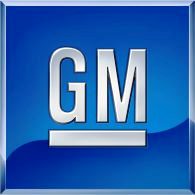Fearing the struggling economy will hold potential investors back, General Motors has apparently decided to downsize its upcoming IPO from what analysts had initially expected to be an all-time-record stock offering.
The decision, sources and published reports suggest, was driven, at least in part, by government officials worried they would not be able to recover the taxpayers’ investment in what has come to be known as “Government Motors.”
Current indications are that GM will try to sell about $8 billion to $10 billion in stock when the IPO takes place, sometime shortly after the upcoming mid-term Congressional elections. Earlier this year, industry observers were betting the stock offering would take place just before the election and that it could come to more than $19 billion – which would exceed the previous record IPO, by Visa.
That March 2008 offering raised $17.9 billion, investors paying $44 a share. But various government and private estimates have suggested that GM would need to garner somewhere between $113 and $135 a share to pay back the U.S. Treasury’s investment of $50 billion during last year’s bailout of the then-bankrupt automaker.
Federal regulations make it difficult for an automaker to comment, in any manner, regarding an upcoming stock offering. Prior to filing for the IPO with the Securities and Exchange Commission, former GM CEO Ed Whitacre broadly hinted that he would prefer to sell off the entire government stake up front.
However, in recent weeks, the automaker has quietly signaled that not only would the IPO be pushed back to the post-election timeframe but downsized.
“It is the goal of this company to return that money to taxpayers,” declared Akerson, during a meeting with reporters last week, but, “I don’t think that will happen in one fell swoop.” It will be a move, he added, likely to take “a couple of years.” (Click Here for more on that meeting.)
The big concern, sources stress, is that GM would come up significantly short, in the current economic climate, and not be able to recover the $49.5 billion investment that has translated into a 60.1% stake for taxpayers and garnered the maker the sobriquet, Government Motors.
On the other hand, Akerson and others have expressed their frustration at that derisive term which, many analysts contend, has hurt the maker in the market, some potential customers opting against GM products because of the bailout.
The new CEO’s limited comments, during last week’s meeting, nonetheless earned Akerson a strong warning from GM’s lawyers, several company sources tell TheDetroitBureau.com, who have tried to ban the three letters, I-P-O, entirely from the GM lexicon until after the initial public offering is completed.


It’s amazing how many people I’ve heard say that they wouldn’t buy and GM product because the government lent them money. That’s like saying, “I’m going to invest my money in McDonald’s but only going to eat at Burger King” You really have to wonder about the mental state of some people.